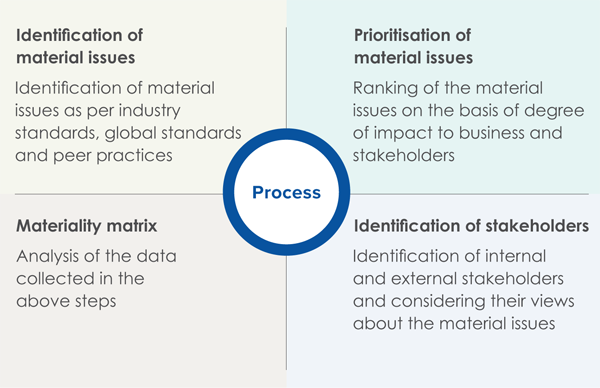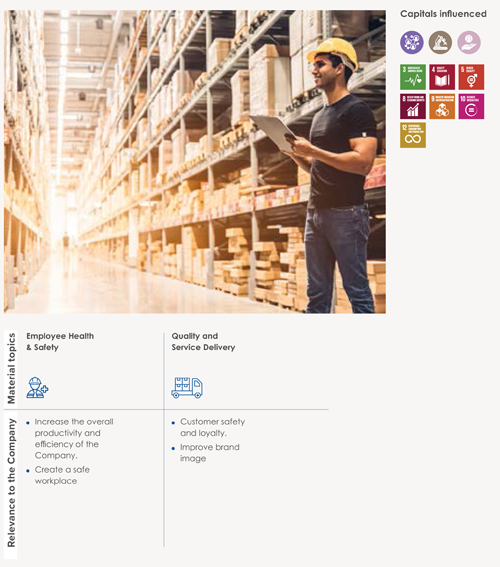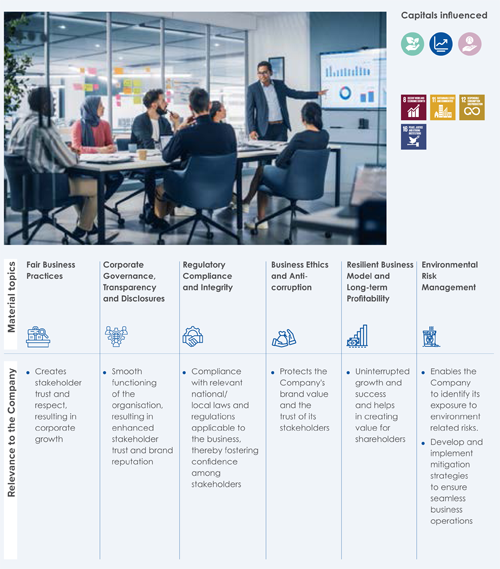Materiality Assessment
Designed to Identify and Evaluate Key Business Aspects
Materiality is a crucial element in our sustainability approach as it helps us focus on the most significant issues, engage with our stakeholders effectively, drive innovation, and enhance accountability. By integrating materiality into our decision making processes, we navigate the complex landscape of sustainability, create shared value, and contribute to a more sustainable and inclusive world.
Identifying critical issues to enhance stakeholder value
Bajaj Electricals recognises the significance of sustainable development and acknowledges the need to identify material topics that are crucial for the growth and development of the Company as well as its stakeholders. In FY 2022-23, in collaboration with an independent consulting firm, the Company conducted a comprehensive assessment of material issues to identify ESG (Environmental, Social, and Governance) topics that are:
- relevant to its stakeholders;
- has the potential to impact the organisation either positively or negatively;
The Company engaged in a materiality exercise by identifying internal and external stakeholders. The insight gathered from diverse stakeholders including leadership, employees, vendors, customers, contract employees, investors and analysts, NGOs and CSR partners as well as research institutes, helped the Company to identify material topics that have a significant impact on the business.
Key Stakeholders

Leadership

Employees

Vendors

Customers

Contract Employees

Investors and Analysts

NGOs and CSR Partners

Industry Associations

Research Institutes

Out of the 40 material issues identified based on peer practices, industry standards, and global benchmarks, we have recognised 14 topics that are crucial for our operations.
Following are the material topics impacting Bajaj Electricals:
Environmental

Social

Governance


